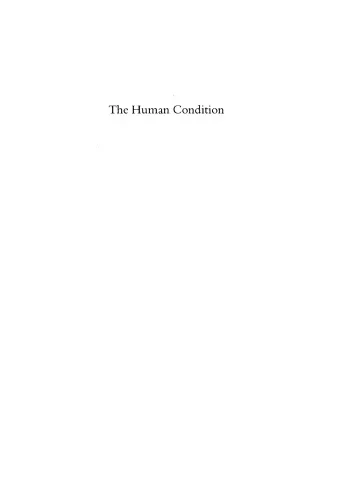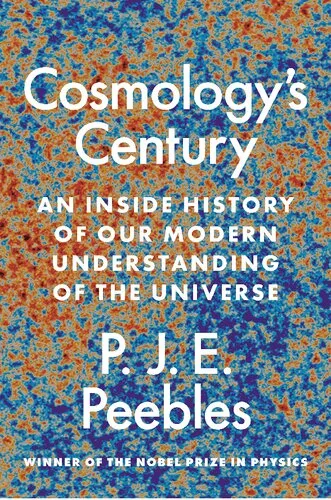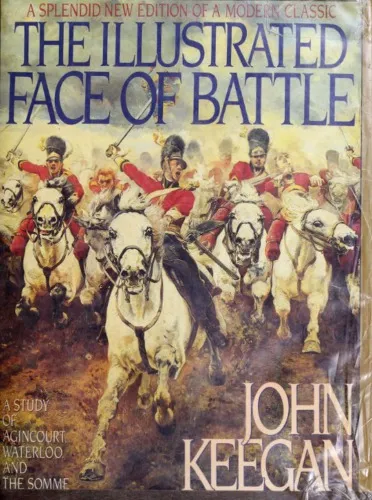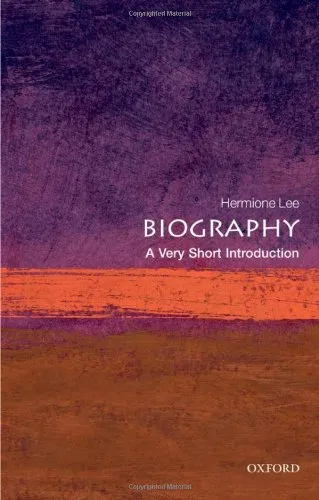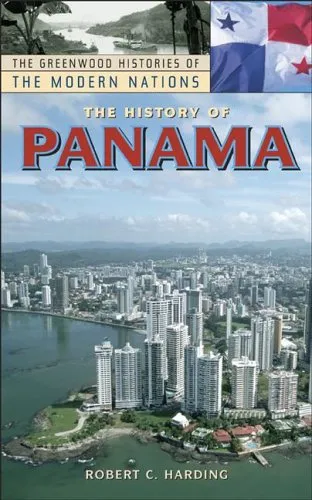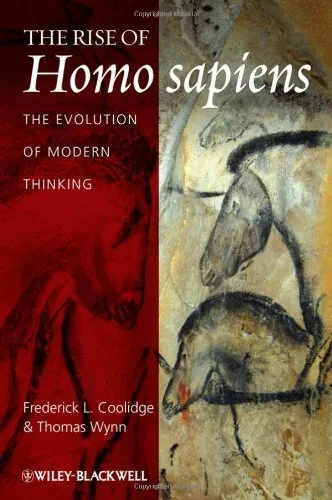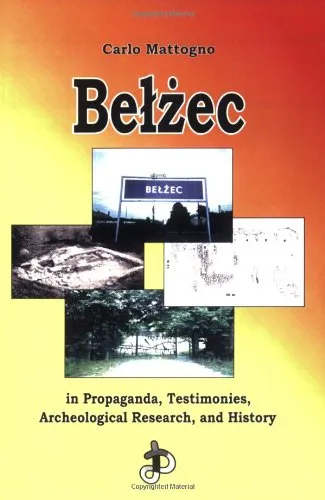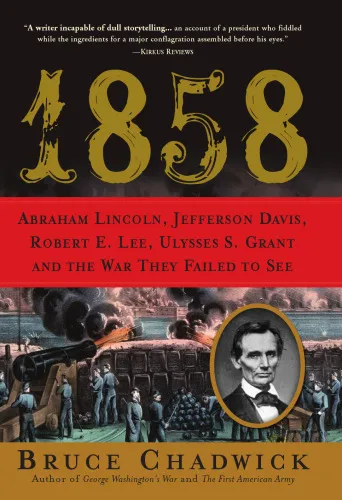The Human Condition: An Ecological and Historical View (Bland-Lee lecture series delivered at Clark University, 1979)
4.3
بر اساس نظر کاربران

شما میتونید سوالاتتون در باره کتاب رو از هوش مصنوعیش بعد از ورود بپرسید
هر دانلود یا پرسش از هوش مصنوعی 2 امتیاز لازم دارد، برای بدست آوردن امتیاز رایگان، به صفحه ی راهنمای امتیازات سر بزنید و یک سری کار ارزشمند انجام بدینکتاب های مرتبط:
معرفی کتاب «The Human Condition: An Ecological and Historical View»
کتاب «The Human Condition: An Ecological and Historical View»، اثر ویلیام اچ مکنیل، یکی از آثار برجسته در حوزه تاریخ و بومشناسی انسانی است. این کتاب بر اساس سلسله سخنرانیهای Bland-Lee در دانشگاه کلارک در سال 1979 نگارش شده است و هدف اصلی آن بررسی تاثیرات متقابل تاریخ انسانی و شرایط زیستمحیطی بر رشد و توسعه تمدنها است.
خلاصهای از کتاب
در این کتاب، مکنیل به دنبال یافتن مدلها و الگوهایی است که بتوانند فهم بهتری از رابطه بین انسان و زیستبوم در طول تاریخ ارائه دهند. او تاریخ را نه صرفاً به عنوان یک رشته مطالعات انسانی، بلکه به عنوان فرآیندی که به شدت تحت تاثیر عوامل محیطی و بومشناختی قرار میگیرد، به تصویر کشیده است. این کتاب تلاش میکند تا نشان دهد چگونه شرایط اقلیمی، دسترسی به منابع طبیعی، و تغییرات زیستمحیطی به ایجاد نظامهای اجتماعی، ساختارهای اقتصادی، و باورهای فرهنگی کمک کردهاند.
مکنیل با تحلیل دورههای مختلف تاریخی، از دوران پیش از کشاورزی تا انقلاب صنعتی و فراتر از آن، رابطه پیچیده بین انسان و محیط را به شکلی ساده و در عین حال عمیق بررسی کرده است. او نشان میدهد که چگونه سطوح رشد فناوری، مهاجرت جمعیتها، و تغییرات اکولوژیک باعث تحول اساسی در عصرهای مختلف شدهاند.
نکات کلیدی از کتاب
- تحلیل مفهوم Ecological Constraints و تاثیر آن بر تمدنها
- بررسی تطبیقی فرهنگهای مختلف و رابطه آنها با محیط زیست
- نقش بیماریها و اپیدمیها در تغییرات اجتماعی و اقتصادی
- رابطه بین پیشرفت فناوری و تخریب زیستمحیطی
- پیشبینی چالشهای زیستمحیطی آینده در چارچوب تاریخنگاری
جملات معروف از کتاب
"History is the interplay of ecological dynamics and human agency."
"Humankind's triumphs are often achieved at the expense of the ecological systems that support life."
چرا خواندن این کتاب مهم است؟
کتاب «The Human Condition» برای تمامی کسانی که به مطالعه تاریخ، محیط زیست، و تعاملات میاننسلی علاقه دارند، اثری حیاتی است. مکنیل به ما کمک میکند تا فراتر از روایتهای سنتی تاریخی نگاه کنیم و ارتباط میان عوامل زیستمحیطی و تصمیمات انسانی را درک کنیم. این کتاب به خصوص در عصری که تغییرات اقلیمی و بحرانهای زیستمحیطی در کانون توجه جهانی قرار دارند، اهمیت ویژهای پیدا میکند.
پیشنهاد میشود این اثر به عنوان یک منبع مرجع برای دانشجویان تاریخ، بومشناسی، و علوم اجتماعی مورد مطالعه قرار گیرد. خواندن این کتاب باعث ایجاد درکی عمیقتر از چالشهای پیشروی نسل انسان و راهحلهای بالقوه برای مدیریت بهتر رابطهمان با محیط زیست میشود.
The Human Condition: An Ecological and Historical View
Written by acclaimed historian William H. McNeill, The Human Condition: An Ecological and Historical View delivers profound insights into the intricate interplay between humanity and its environment across the centuries. This book, based on the 1979 Bland-Lee lecture series at Clark University, stands as a testament to McNeill's ability to weave ecological perspectives into historical narratives, offering a fresh lens through which we understand ourselves and our collective development. The Human Condition invites readers to explore the interdependence between human societies, their environments, and the historical patterns that have shaped civilizations as we know them today.
Detailed Summary of the Book
At the core of The Human Condition lies McNeill’s thesis that human history is inseparable from environmental factors. McNeill meticulously explores how ecological forces have influenced human living conditions, societal organization, and cultural shifts throughout time. He connects historical patterns with ecological dynamics, emphasizing that humans have both adapted to and reshaped their environments in ways that profoundly affect their survival and cultural development.
McNeill delves into the impact of disease, agricultural practices, food production, and technological advancements on societal evolution. For example, he discusses how the Neolithic Revolution marked a turning point in human history, triggering transformative changes in population growth, sedentary lifestyles, and ecological manipulation. The book also explores the pressures of industrialization and urbanization in the modern era, underlining their ecological cost and societal repercussions.
Throughout the book, McNeill highlights the paradoxical nature of human ingenuity — how humans create solutions that often bring unforeseen challenges. These insights challenge readers to think critically about the balance between innovation and sustainability as humanity grapples with its ecological footprint in the 21st century.
Key Takeaways
- Human history is deeply intertwined with ecological factors, and understanding this connection is crucial to grappling with current global challenges.
- Technological advancements solve many problems but simultaneously introduce new ecological and social challenges.
- Adaptation and resilience are central themes in humanity's survival throughout time, offering lessons for the future.
- Historical patterns reveal the consequences of overexploitation and mismanagement of natural resources.
- Cultivating ecological wisdom is necessary for sustainable development and long-term survival.
Famous Quotes from the Book
McNeill's prose carries the weight of scholarly insight and poetic reflection. Here are a few memorable quotes that offer a glimpse into his ideas:
"Humankind’s fate has always been shaped as much by its ecological context as by its own ingenuity."
"The relationship between man and nature is not one of dominance but of mutual influence — a fact often overlooked by those enamored of progress."
"History is not a straight line; it is a dance between human aspiration and environmental constraints."
Why This Book Matters
The Human Condition: An Ecological and Historical View remains relevant today because of its central theme: humanity's interconnectedness with nature. In an era marked by climate change, resource depletion, and ecological imbalance, understanding the historical and ecological dynamics that shaped our world provides crucial insights into creating sustainable futures.
McNeill challenges us to move beyond linear understandings of progress and focus on the adaptations necessary to maintain harmony with our environment. This book calls for reflection on the lessons of history and for action in addressing contemporary ecological crises. By situating ecology at the heart of historical understanding, McNeill’s work inspires us to rethink humanity’s role on this shared planet.
The Human Condition is not merely a history book; it is a guide to comprehending the interconnected, fragile, and resilient nature of human life—a perspective that remains vital today.
دانلود رایگان مستقیم
شما میتونید سوالاتتون در باره کتاب رو از هوش مصنوعیش بعد از ورود بپرسید
دسترسی به کتابها از طریق پلتفرمهای قانونی و کتابخانههای عمومی نه تنها از حقوق نویسندگان و ناشران حمایت میکند، بلکه به پایداری فرهنگ کتابخوانی نیز کمک میرساند. پیش از دانلود، لحظهای به بررسی این گزینهها فکر کنید.
این کتاب رو در پلتفرم های دیگه ببینید
WorldCat به شما کمک میکنه تا کتاب ها رو در کتابخانه های سراسر دنیا پیدا کنید
امتیازها، نظرات تخصصی و صحبت ها درباره کتاب را در Goodreads ببینید
کتابهای کمیاب یا دست دوم را در AbeBooks پیدا کنید و بخرید
1238
بازدید4.3
امتیاز0
نظر98%
رضایتنظرات:
4.3
بر اساس 0 نظر کاربران
Questions & Answers
Ask questions about this book or help others by answering
No questions yet. Be the first to ask!
